Rashtriya Swayamsevak Sangh(RSS) is unarguably the largest voluntary organisation in the world. It has more than 60,000 daily shakhas and according to its informal internal assessment at least 50 million Indians are closely associated with the organisation on a daily basis. It has a presence in more than 80 per cent of Indian villages. Inspired by the RSS, there are more than three dozen national organisations run by its volunteers which are implementing more than two lakh social projects benefiting every section of society.
One of the most significant aspects of the RSS which made this expansion possible is also one of the least discussed, ie the training camps of the RSS.
These camps have been focusing for the last almost 95 years on training its volunteers to carry forward its work in every nook and corner of the country. The history of these training camps go back to the early years of the RSS and they have evolved over a period of time.
The RSS couldn’t hold any camps during the past two years due to COVID-19. However, this year it has resumed its training camps. Thousands of volunteers would undergo training in these camps over a period of May-July this year. Millions have already undergone this training in the last nine and a half decades.
If one wants to understand why and how RSS cadres have such a high level of commitment and dedication to work selflessly for the nation, how thousands of full-timers (Pracharaks) left highly paid jobs and very prosperous looking careers at a very young age to live, work and die for the organisation, it is important to understand the philosophy, evolution and functioning in these training camps.
These training camps would help one understand how there is a continuous inflow of highly dedicated and committed cadres with perfect ideological clarity that brings crores of swayamsevaks on the same page and help RSS move forward with great discipline and focus.
The RSS conducts several training camps to strengthen its organisation. The most important of these camps can be broadly classified into four categories: 1. Sangh Shiksha Varga – First Year. 2. Sangh Shiksha Varga – Second Year. 3. Sangh Shiksha Varga – Third Year. 4. Sheet Shivir (Winter Camp).
A day at these camps typically begins at four in the morning and ends at ten in the night. The morning and evening hours are used for physical exercises. The afternoons and late evening hours are used for intellectual discourses and discussions on various ideological issues as well as contemporary developments in the context of the ideological framework. The food served during these camps is vegetarian and without spice. It is cooked by the swayamsevaks and served by them. The camp begins and ends with surgical precision. Every activity is pre-planned and there is a high level of self-discipline. These camps are residential camps and swayamsevaks sleep in dormitories.
While the first-and second-year camps as well as the winter camps are organised at the state and sometimes district levels, the third-year camp is organised at the RSS headquarters at Nagpur. The ‘Third-Year’ camp is the most coveted one and selected swayamsevaks from all over the country attend it. It is a 30-day camp organised during the soaring heat in Nagpur in Maharashtra. This training camp can only be attended by those who have attended the first-and the second-year camps. This year 735 swayamsevaks selected from all over the country are attending this third-year camp which began in Nagpur on 9 May.
A large number of swayamsevaks, who attend the third-year camp mostly choose to become a ‘Pracharak’. However, not everyone finishing the third year camp does that. All the trainees who attend the camp pay a nominal fee that collectively takes care of the expenses incurred for the camp.
History of Training Camps
The first RSS training camp was held at Nagpur in 1929. It was organised for 40 days from 1 May to 10 June. Initially, these camps were called ‘Summer Camps’, as they were organised during the summer vacations. The name ‘Sangh Shiksha Varg’, was used after 1950 for these camps. The training curriculum of the RSS for these camps has evolved gradually. In the early years of RSS, the focus during these training camps was primarily on ‘March Past’ and other military activities. A significant number of commands were given in the English language.
BN Varadpande, a senior RSS functionary from Nagpur-recalls in his book, Sangh Karyapaddhati Ka Vikas: “In one of the meetings, there was discussion about how we should address the summer camps which were being organised. Someone suggested the name should be ‘Training Classes’. Another Swayamsevak added that as these camps are to expand the RSS shakhas, so we should call it Sangh Training Class. Dr (Hedgewar) said that as these camps are organised to prepare workers for the RSS which can give maximum amount of time to the organisation, so it should be called, ‘Officers’ Training Camp (OTC)."
MS Golwalkar, popularly known as Guruji, who was the second Sarsanghchalak of the RSS, re-named these camps as Sangh Shiksha Varg. Up to 1937, there used to be some entertainment programmes in the RSS camps on Saturday evening and on Sunday, the daily routine of programmes for the shakha were also not followed on weekends. However, this ‘break’ was shelved after 1938 as it appeared that this affected the training programme. In days to come, the time-period of the camps was also reduced from 40 to 30 days. Till 1934, the RSS camps were conducted only in Nagpur. The second-and third-year camps started at Pune in 1935. In 1938, the first-and second-year camps were also started in Lahore.
There have been several interesting anecdotes related to the RSS training camps, where class, creed, caste does not matter. All the trainees are treated as one and the same. There is no discrimination. It might look quite ordinary today but it was an extraordinary feat to bring trainers and trainees from all castes together and make them eat together and stay together as brothers.
In 1934, Mahatma Gandhi visited a Sangh Shiksha Varg at Wardha. While addressing the RSS workers, he recalled during one of his speeches in Delhi on 16 September 1947. “I visited the RSS camp years ago, when the founder, Shri Hedgewar, was alive. I was very much impressed by your discipline, the complete absence of untouchability and the rigorous simplicity. Since then, the Sangh has grown. I am convinced that any organisation, which is inspired by the high ideal of service and self-sacrifice, is bound to grow in strength.”
Dr Bhimrao Ambedkar visited Sangh Shiksha Varga in Pune in 1939. When Dr Ambedkar asked Dr Hedgewar whether there were any untouchables in the camp, the RSS founder replied that there were neither touchables nor untouchables, but only Hindus there. Dr Ambedkar said, “I am surprised to find the swayamsevaks moving about in absolute equality and brotherhood without even caring to know the caste of the others.” Leading freedom fighter Jayaprakash Narayan, a known socialist, who led the historic movement against the anti-democratic forces in the 1970s, addressed an RSS training camp in Patna on 3 November 1977.
In addition to the Sangh Shiksha Varga, the short-term training camps are also organised by the RSS. However, within the Sangh Parivar, winter camps are one of the oldest and the most popular training camps. The first winter camp was organised in 1928 at Nagpur. This could also be termed as the first training camp of RSS. These are generally for shorter duration of around a week and are organised during winters. The routine remains the same where they get up at four in the morning and sleep at ten in the night. They are generally organised during December vacations. There is no excuse for anyone to skip the tight schedule that binds all in a much stronger bond of brotherhood and a better ideological perspective along with confidence that comes out with strong focus on building up their physical strength. The aim is to build men of character who have the physical prowess and mental strength to face any adversity.
During all the RSS training camps, swayamsevaks sleep on the floor, personal belongings are not kept in lock and key, the security of the camp venue is also being taken care of by the swayamsevaks with round the clock vigil. The swayamsevaks from the nearby areas are entrusted with various arrangements and these camps are generally organised in a school or college building. The RSS-inspired organisations now run thousands of educational institutions. So the space is now readily available for the RSS camps.
Everyone is not allowed to attend these camps. The trainees which are selected are often screened at the shakha level and the senior RSS functionaries identify the swayamsevaks which have greater potential to dedicate themselves completely for the Sangh work. They are motivated and encouraged to attend these camps. There is no compulsion to attend the training camps for anyone but a large number of swayamsevaks attend these camps and come back with much greater ideological commitment to work for the cause.
One of the prime purposes of these training camps is to ensure that the top RSS ideologues and stalwarts can deliver discourses to swayamsevaks coming from different parts of the districts, states and the country at one place. It is one of the most effective ways for the senior RSS functionaries to connect with the swayamsevaks. There are no political discussions in any of the RSS training camps; the focus is on ideology, physical strength, character-building, organisational work and key challenges faced by the nation.
The writer, an author and columnist, has written several books. Views expressed are personal.
Read all the Latest News , Trending News , Cricket News , Bollywood News , India News and Entertainment News here. Follow us on Facebook , Twitter and Instagram .


)




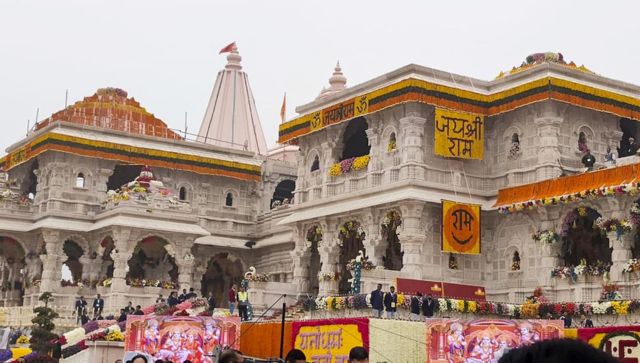)
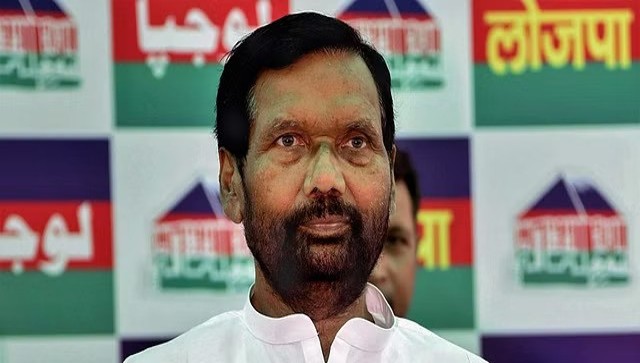)
)
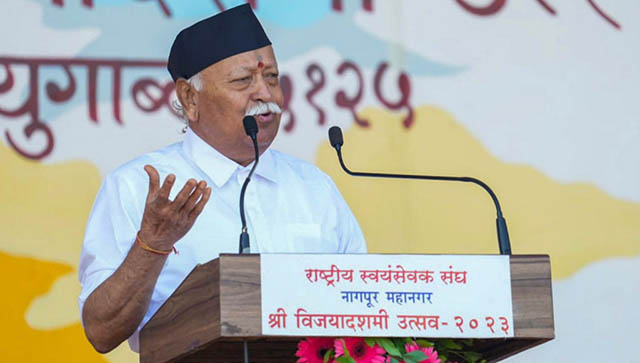)
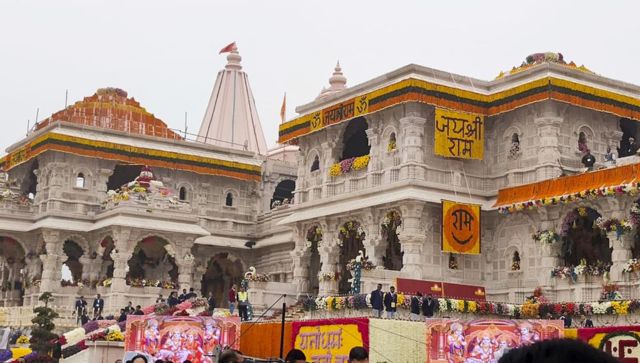)
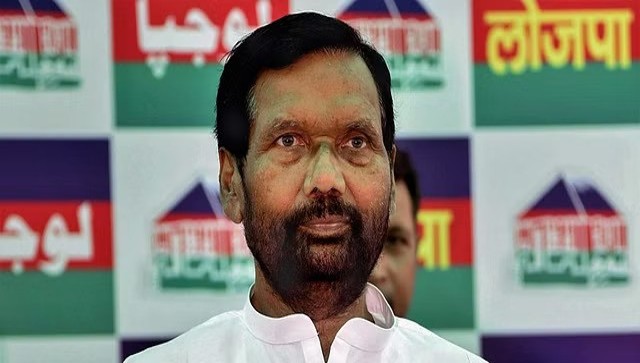)
)
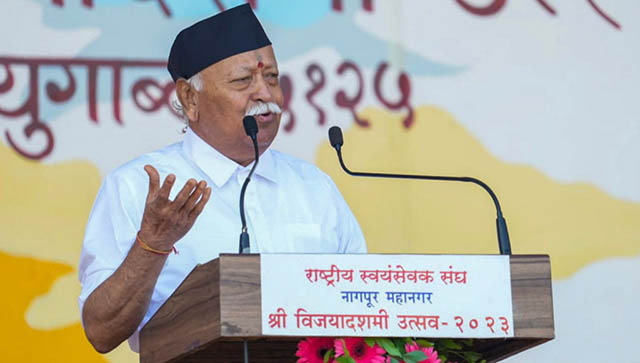)